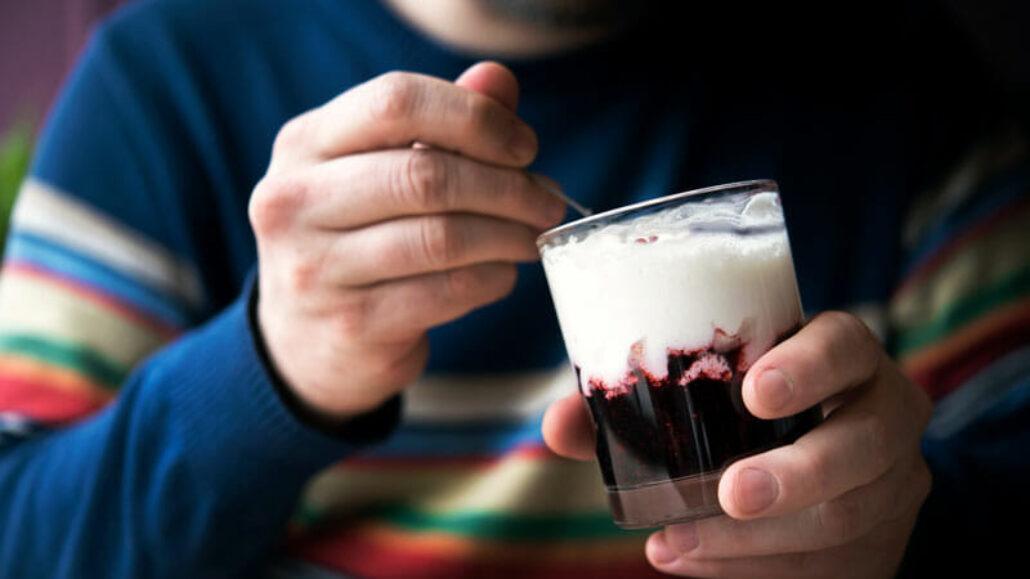Probiotics regulate digestive health; did you know that they can also support strong bones?
The word “bacteria” usually conjures up concerns about infection and disease. But not all bacteria are bad. Probiotics are foods containing micro-organisms that promote growth of bacteria in our gut that are good for our digestive health. However, the benefits of these bacteria-maintaining foods aren’t confined to our stomachs. New research is discovering benefits that can also keep our skin, immune system, nervous system, and even our bones healthier.
Bacteria are more important to good health than you might guess
“There are over a hundred thousand strains of bacteria in our digestive system,” explains Summit dietitian Kayley Gamm. “In fact, if you collected all the bacteria living in your gut, the weight would be between two and three pounds. That’s about the weight of your brain.” The health of our gut bacteria relies on factors including the amount of probiotic-rich food in our diet. Kayley reviews the basics of these helpful bacteria, and explains how we can use a probiotic-rich diet to enhance health.
Probiotics and prebiotics work together to improve health
Supporting better health through the power of good bacteria means understanding how these microorganisms work together. “Probiotics are live organisms that help promote good bacteria in your digestive tract,” explains Kayley. “There are many strains of these healthy bacteria. Some of the most helpful strains are found in unprocessed refrigerated fermented foods. These can include fermented dairy products like yogurt and kefir. Other good sources are sauerkraut, kimchi, and refrigerated pickles. Just remember that jarred or canned pickled goods aren’t a good choice because pasteurization kills live, active probiotic bacteria. So does vinegar. To maximize your health benefits, choose fermented foods that don’t contain vinegar and that do require refrigeration.
You can use prebiotics to amplify the benefits of probiotic foods. “Prebiotics are indigestible complex carbohydrates,” Kayley continues. “Think of prebiotics as food for probiotics. You’ll find them in foods like onions, asparagus, bananas, oats, apples, and garlic. When you eat prebiotics with probiotic foods, you maximize the effectiveness of these substances to build healthy gut bacteria.”
An increase in digestive issues prompted research
“There’s so much focus on good gut bacteria now because a lot more people are noticing GI issues,” explains Kayley. “These issues can be traced back to the less-than-optimal American diet.” Problems like bloating, gas, constipation, diarrhea, and inflammation are symptoms that can be triggered by a combination of stress, lifestyle, and a high-fat diet. Eating probiotic foods isn’t a cure-all, but these foods can help grow good bacteria to relieve digestive symptoms.
Just as important, the value of balanced gut bacteria extends beyond digestive health. A healthy gut also supports the health of our immune and nervous systems. Kayley notes that fermented foods can even have a positive impact on your bone health.
How fermented foods help with bone health
“You can harness the interaction between probiotics and prebiotics to help your body absorb calcium more effectively,” Kayley explains. “If you combine a calcium-rich probiotic food like yogurt or kefir—or a calcium supplement—with a prebiotic, it can help increase your body’s ability to absorb the calcium. Try yogurt with bananas for breakfast, or add a generous dollop of yogurt to your bowl of oatmeal. If you want another option, a smoothie incorporating kefir or yogurt with oats will also do the trick. Whenever you combine a fermented food that’s high in calcium with a prebiotic, the prebiotic will boost the absorption of the calcium to help keep your bones strong.”
Calcium-rich probiotic foods
Although many types of bacteria are considered probiotics, Kayley explains that lactobacilli, one of the most common groups of bacteria, are often calcium-rich. Lactobacilli are found in yogurt, kefir, and other fermented dairy products.
Know the food culprits as well as their probiotic counterparts
“Basically, the foods that introduce bad bacteria into your gut are high in fat,” says Kayley. “Fried foods, saturated fats, and highly marbled meats feed bad bacteria. A diet too high in these foods can trigger irritable bowel symptoms and other health problems. The good news is that eating probiotics on a regular basis can counteract the effects of fatty foods. As a result, if you’re regularly eating a healthy diet, you can have an occasional treat like french fries or steak without putting your healthy gut bacteria at risk.”
Summit Orthopedics offers proactive wellness services
At Summit Orthopedics, we are committed to providing the resources, tools, and expertise you need to achieve your personal fitness goals. Our Summit wellness center is home to proactive wellness classes and training services for you and the whole family. Wellness experts can work with you or your physician to design an exercise program that supports lifelong health through exercise.
Start your journey to a more active self through our wellness services offered at the HealthEast Sports Center. Schedule a free wellness consultation online or call 651-968-5766. Find the group fitness class that works with your schedule. Visit our Facebook page to learn all about the wellness events we offer to safely promote good health throughout your life.
